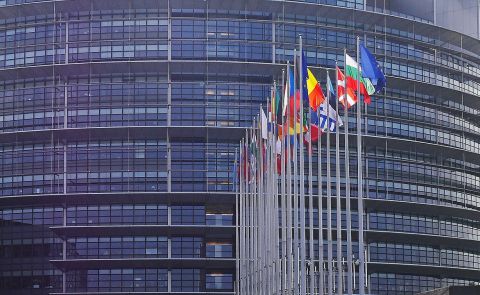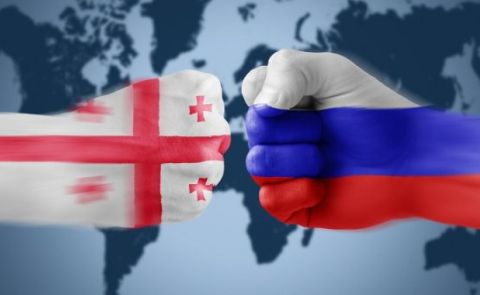
Salaries, minimum wage, inflation, rise in prices in Azerbaijan

From January 1, the minimum wage in Azerbaijan was raised from 250 to 300 manat (130 to 155 euros), an increase between 20-40%.
At the same time, last year the Tariff Council increased the prices for water, electricity, gas, as well as other services and products. From January 1 this year, state duties have been doubled.
In recent days, the pro-government local media has been spreading propaganda about the rise in grain prices on the world market. Observers believe that the price of flour and flour products, including bread, is likely to rise.
According to local media, the price of "factory" bread, which is mostly used by the poor in many grocery stores in Baku, has increased by 0.02 manat (0.01 euro).
"Sellers explain the rise in prices by the increase in the price of flour. Earlier, a 50-kilogram bag of flour cost 25 manat (approximately 12 euros), but recently the price of this product has increased by 6-9 manat (3-5 euros),” Turan News Agency reported.
According to the Ministry of Labour and Social Protection, the increase in the minimum wage and the single tariff schedule will affect 800,000 people. The current salaries of 400,000 public sector and 400,000 private sector employees have increased since the beginning of the month.
The annual additional financial cost for the increase in the minimum wage is 239.7 million euros.
Economist Azer Mehdiyev believes that the impact of the minimum wage on social welfare is a very complex issue.
"Because the minimum wage only affects the income of employees working under an employment contract. It also has a direct impact on the incomes of employees in state-owned enterprises but is the lowest in private companies. However, this is not a factor affecting the level of all incomes in the country. The extent to which the minimum wage itself meets the requirements is a matter of debate in the country from time to time.”
According to the economist, in order to know the impact of the increase in the minimum wage and social payments on nominal income, it should be compared with the inflation rate.
At the same time, Mehdiyev believes that the current social situation is not at a level that would lead to social protests.
"I do not see a situation that will provoke social protests," he said. “In some cases, there may be individual mergers. However, it is not expected that it will lead to any mass social protests. That is not the case."
He believes that the nature of current inflation is largely due to price increases.
Former Prime Minister of Azerbaijan Panah Hussein believes that the social situation of the population continues to deteriorate.
"The main thing that is visible here is the uncontrolled rise in prices," he said. “Of course, raising the minimum wage and other social benefits is not adequate and cannot fully compensate for the price increase.”
According to the former prime minister, salaries are often paid through black accounting.
"Therefore, the increase in wages does not affect the social welfare of those who receive wages through black accounting, and even negatively affects the real value of wages of these people. On the other hand, an increase in wages also means an increase in taxes and social payments.”
Panah Hussein believes that to overcome the short-term situation, it is necessary to take additional measures to stabilise and improve the social situation of low-income and large families.
The opposition Popular Front Party of Azerbaijan (PFPA) has criticised the increase in prices in the country.
Ali Karimli, chairman of the Popular Front Party, wrote on his Facebook page that the government should take measures to improve the social situation of the population instead of PR campaigns.
"Do Ilham Aliyev's successive PR visits to the liberated regions compensate for price increases and mass price increases? Can gas heat the homes of people who can't afford electricity? Does it feed the poor who do not know how to feed their families and children? Do these successive visits address the plight of the unemployed, the poor, those whose pensions and benefits have been revoked, veterans who have been deprived of their benefits for 14 months, and other helpless people?”. The chairman of the Popular Front Party demands that the government answer these questions.
Earlier, in his address to the nation on December 31, President Ilham Aliyev said that Azerbaijan has already entered a post-crisis period.
"Azerbaijan's economy grew by 5.3% in the first 11 months of this year, while the non-oil economy grew by 6.4%. Industrial production increased by 5.5%, industry in the non-oil sector by 20.7%. Our foreign exchange reserves have increased by $2.2 billion. The positive balance of our trade relations is $9.4 billion. Our external public debt is only 17% of our gross domestic product, and this year the external public debt has decreased, both in absolute terms and in relation to GDP.
The Central Bank of Azerbaijan said late last year that inflation continues to rise in all subgroups of goods and services.
"In November, the food price index rose by 1.9% compared to the previous month, and annual food inflation is 14.9%. Average annual food inflation was 7.4% in January-November. Prices for non-food products rose by 0.5% in November compared to the previous month, and by 7.1% over the past year. Average annual non-food inflation was 4.8% in January-November.
Services rose by 1.6% in November and by 9.1% over the past year. Average annual service inflation was 5.4% in January-November. The effects of the price liberalisation factor applied to government inflation to service inflation continue. "
According to the World Bank, the Central Bank affects import prices by raising inflation in Azerbaijan's trading partners.
"Import prices rose by 21.4% in January-October compared to the same period last year. The dynamics of actual inflation also affects inflation expectations. Over the past 12 months, inflation expectations have tended to increase in the monitored sectors of the real sector. According to a December survey, 29% of households expect inflation to rise further.
According to the updated forecasts, the average annual inflation is expected to be 6.3-6.6% this year, and the annual inflation is 11.4-11.9%.
The Central Bank believes that according to the base forecast, inflation will stabilise from the first quarter of next year, and from the second half of the year, inflation will move to the upper limit of the target range.
See Also

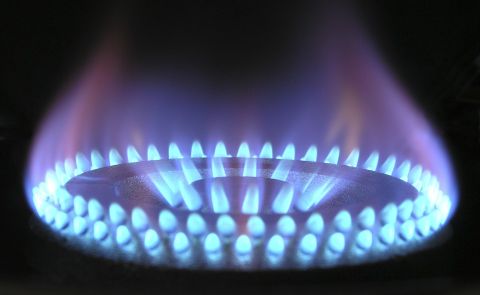
Georgia Imports More Russian Natural Gas Than Azerbaijani Gas for the First Time in 18 Years
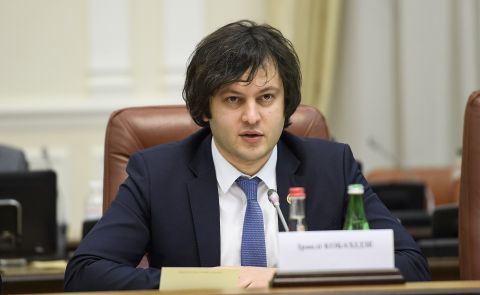
Irakli Kobakhidze Appointed Chair of Georgian Dream Party
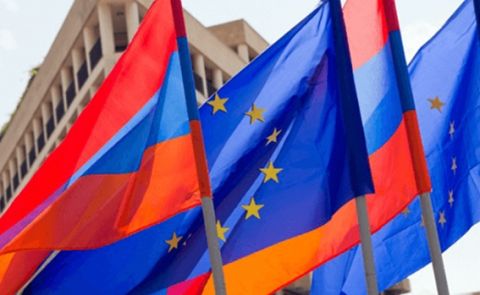
Armenia Aligns Consumer Law with EU Standards in New Reform Bill
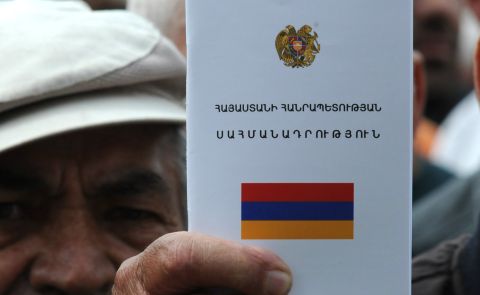
Armenia’s New Constitution Underway, Public Review Promised
